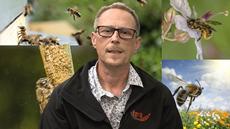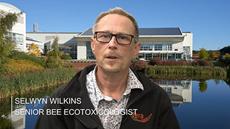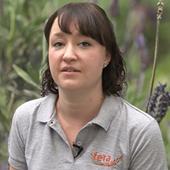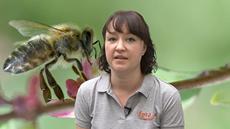Selwyn Wilkins
Fera ScienceBee Ecotoxicology – An Essential Field of Study to Protect Pollinators
31 Jul 2018
Bee species are essential pollinators that will optimize crop yields and germination. However, the decline of bee colonies around the globe has been alarming to agriculturalists. A key culprit for bee decline is plant protection products, many of which are toxic and deadly to bees. To ensure the survival of bee colonies, researchers at Fera carry out a variety of toxicity tests of plant protection products and other chemicals to identify and prevent bee mortality. In this webinar, senior bee ecotoxicologist Selwyn Wilkin illustrates methodologies and techniques to carry out toxicity tests to ensure the health of bee colonies.
LIKE
1
Selwyn's Videos

Chemical Regulation




